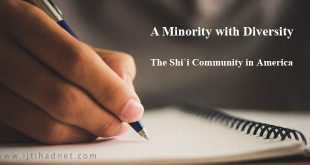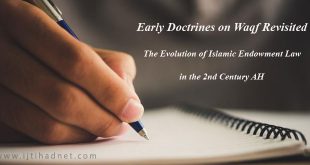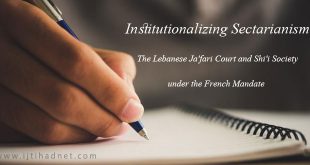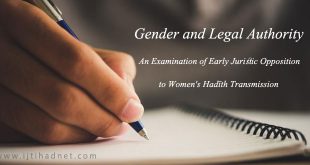In this article, Aaron Rock-Singer, traces the emergence of gender segregation within contemporary Salafism, focusing on Egypt as a case study to examine the interaction between textual hermeneutics, ideological cross-pollination and...
Read More »Shiʻi Treasures in North American and European Libraries
This communication, Shiʻi Treasures in North American and European Libraries: A Zaydī Multitext Manuscript from the Glaser Collection, provides an expanded description of the contents of a Yemeni codex from the...
Read More »Twelver Shia in Edinburgh: Marking Muharram, Mourning Husayn
Research on the Shia in Scotland and of their spaces of worship and gathering continues to be under represented in the research field of Muslims in Britain. According to the 2011 census, there are...
Read More »A Minority with Diversity: The Shiʿi Community in America
This article will argue that divisions within the American Shiʿi community are often exacerbated by the establishment of ethnic institutions that act as cultural buffers...
Read More »Early Doctrines on Waqf Revisited: The Evolution of Islamic Endowment Law in the 2nd Century AH
This study examines the early development of waqf doctrine, based on sources from the 2nd century AH, the writer argues that the institution of waqf emerged from a fusion of two earlier institutions....
Read More »Article: Human Cloning through the Eyes of Muslim Scholars
This article gives a comprehensive analysis of these conferences, the relation between science and religion as reflected in the discussions there, and the further influence of these discussions on Muslims living in...
Read More »Institutionalizing Sectarianism: The Lebanese Ja’fari Court and Shi’i Society under the French Mandate
The formal recognition of the Jaʿfari madhhab in Lebanon in January 1926 and the subsequent development of a state-led court system by the...
Read More »“Fantastic Charities”: The Transformation of Waqf Practice in Colonial Zanzibar
The present study examines the impact of British colonial rule on traditional waqf practice in the Sultanate of Zanzibar. The writer shall argue that British policy towards waqf in Zanzibar was shaped by a combination of...
Read More »Discourse on Hudud in Malaysia: Addressing the Missing Dimension
Implementation of Islamic criminal law particularly of the hudud at present time, beyond its politics, raises numerous juridical problems of substantive law, procedure and...
Read More »Gender and Legal Authority: An Examination of Early Juristic Opposition to Women’s Hadīth Transmission
This article analyzes two cases of early juristic opposition to the legal authority of hadīth narrated by women...
Read More » Ijtihad Network Being Wise and Faithful Muslim in the Contemporary World
Ijtihad Network Being Wise and Faithful Muslim in the Contemporary World









